On May 21, 2013, the foundation announced the Grand Challenges Explorations Round 10 winners. Almost 60 innovators were awarded grants for projects focusing on one of five categories. Some of the winners are featured here.
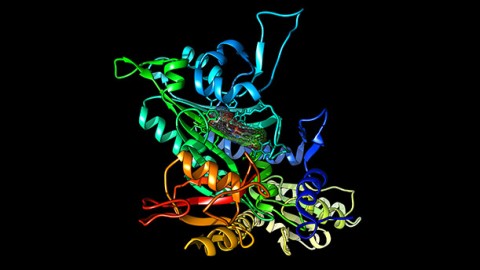
Ralph Mazitschek of the Massachusetts General Hospital in the U.S. is testing whether inhibitors of tRNA-synthetases, which are enzymes that are essential for survival of the malaria parasite, can be used as anti-malarial drugs. These inhibitors will be used to screen compounds in the Malaria Box to identify ones that are candidates for further testing.
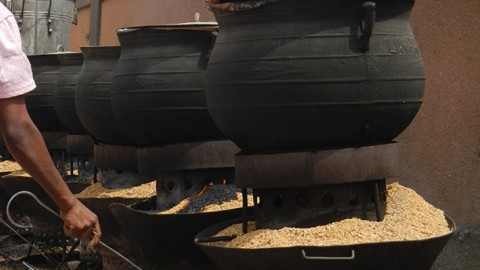
Karime Séré of Intermon Oxfam of Spain is working with the National Research Institute for Technology and Science in Burkina Faso to develop more efficient and durable rice husk furnaces and lower-cost rice sorting equipment. These could reduce the labor involved in parboiled rice production, the principal livelihood of thousands of Burkinabe women.
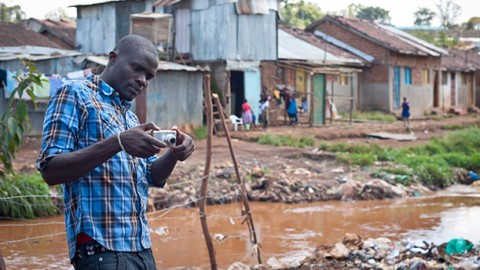
Jamie Lundine and a team from Spatial Collective in Kenya will create and test a new multi-media interactive community platform that is accessible via SMS and can be used by community members to identify local development challenges and suggest possible solutions. Service providers and potential donors can then monitor the platform to become aware of opportunities to help develop and evaluate solutions.
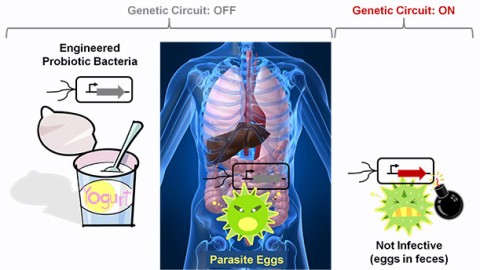
Tae Seok Moon from Washington University in the U.S. is developing probiotic bacteria for human consumption that will release a substance when they are excreted from the body to kill any parasitic eggs present in feces. Killing these eggs will prevent disease transmission.
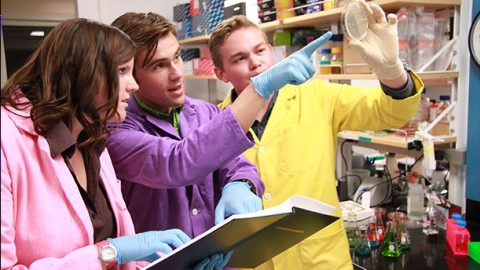
Gregory Goldgof and colleagues at the University of California, San Diego in the U.S. have developed a modified yeast strain that they will use to test drug candidates in the Malaria Box. By treating these yeasts with the drug candidates, the team can determine their activity and identify resistance mechanisms that will aid the development of these candidates into new drugs.

Ton Rulkens and his team from Oxfam-Solidarité in Belgium are working in Northern Mozambique with women farmers, local blacksmiths, and scientists to design new hoes for women that reflect their preferences, accessibility constraints, social systems, and cultural beliefs.
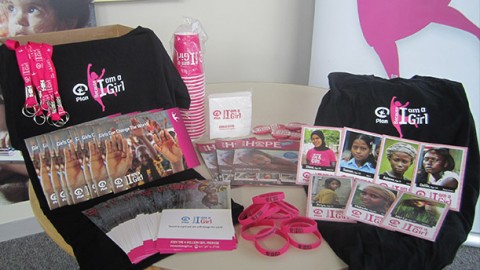
Chip Carter and colleagues of Plan International USA in the U.S. will evaluate a proven marketing model, the House Party, as a way to increase participation in international development causes. Supporters of child-focused programs will host parties that use literature, short films, and other materials to engage supporters, and Carter and his team will measure the effectiveness of this approach and its potential for replication.
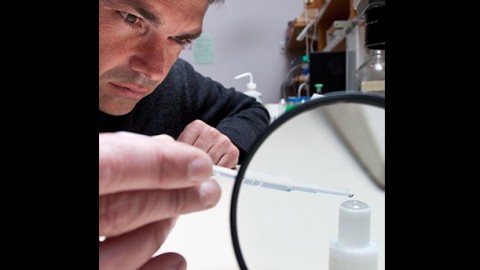
Stephen Sowerby of the University of Otago in New Zealand has developed a cell-phone diagnostic tool for transmitting digital images of processed stool samples for remote diagnosis and monitoring of soil-transmitted infections from intestinal worms.
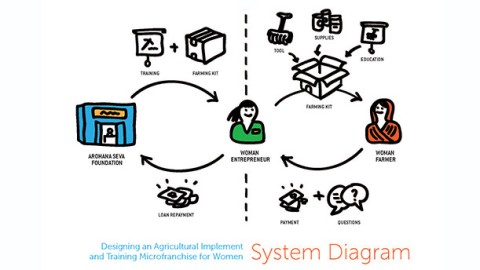
Patrice Martin of IDEO.org in the U.S. and Devi Prasad Rao from the Arohana Seva Foundation in India are designing a micro-franchise system that will rent small and mid-sized timesaving agricultural implements to Indian women smallholder farmers to improve their productivity and incomes.
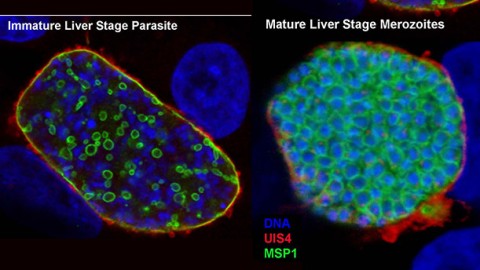
Kirsten Hanson and colleagues from the Instituto de Medicina Molecular in Portugal have developed a liver-stage screening strategy that they will use to screen for compounds that block the final maturation stage of the Plasmodium parasite, which causes malaria. Identifying drugs that specifically kill these liver-stage parasites will prevent the establishment of the disease in the host and block transmission.
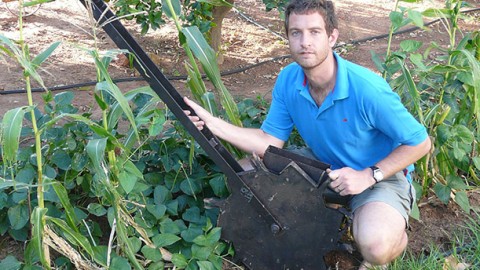
August Basson of the KEL Growing Nations Trust in Lesotho and collaborator Adriaan Jacobs (pictured) are developing and field-testing a downsized rotary seed planter that is adapted specifically for small-scale women farmers planting maize and other grain crops.
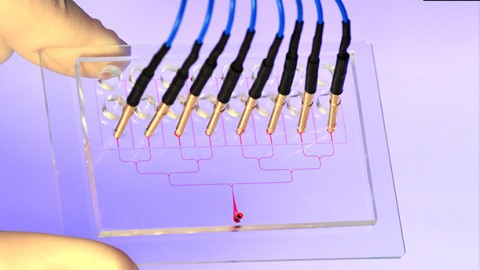
Janis Weeks and Shawn Lockery of the University of Oregon and NemaMetrix in the U.S. are developing a drug discovery platform that uses microfluidics and electrophysiological methods to record electrical signals in parasitic nematodes, information which will be used to identify new drugs that kill the worms by disrupting their neuromuscular function.
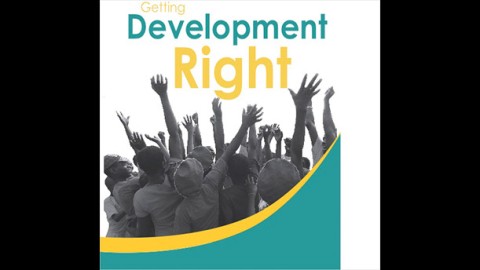
Charlotte Obidairo and team from Coxswain Social Investment plus in Tunisia will develop an open digital platform to solicit or offer solutions to development challenges from young people around the world. They will present inspiring community-based success stories in multimedia format, and then evaluate the project for impact and possible expansion on a global scale.
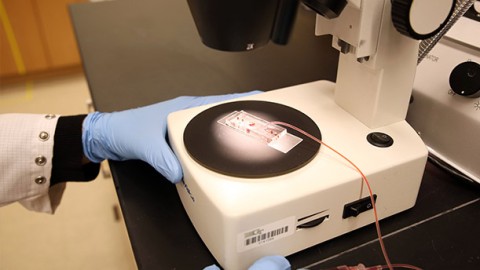
J. Brandon Dixon of the Georgia Institute of Technology in the U.S. is developing a model of a human lymphatic vessel to support adult-stage lymphatic filariasis parasites in vitro. Recreating the host environment where the parasites normally reside can keep them alive for longer periods of time, which is crucial for developing new drugs.
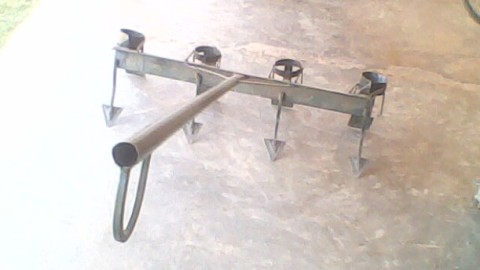
Alfred Alumai of Muni University in Uganda, along with Ronald Avutia and Yasin Angua of NilePro Trust, is field-testing a new small seeds planter that facilitates row cultivation of millet, sorghum, and groundnuts, saves time and labor associated with weeding and harvesting, and increases production and yield.